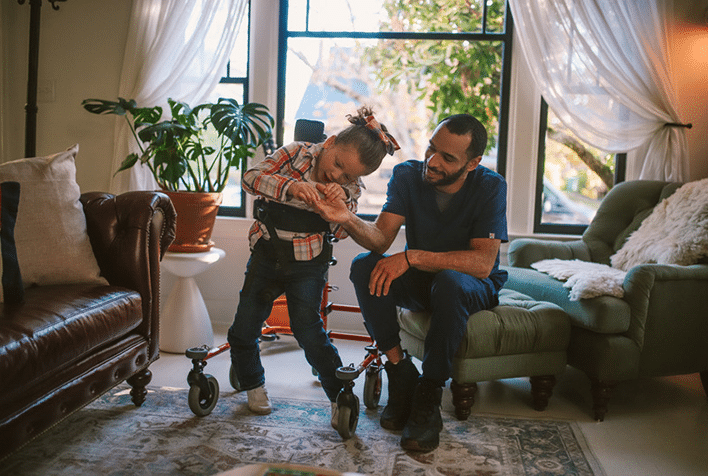
Cerebral Palsy Alliance (CPA) is thrilled to announce a major funding grant awarded to the Equitable Pathways and Integrated Care in Cerebral Palsy (EPIC-CP) program, supported by CPA and led by University of Sydney Professor of Community Paediatrics, Sue Woolfenden and a group of specialist researchers.
The $1,464,888.22 grant was allocated through the 2023-2027 MRFF (Medical Research Future Fund) Clinician Researchers – Applied Research in Health Application, which marks a significant milestone in advancing research into cerebral palsy treatment and care.
Over the last 8 years, CPA has supported the co-development, growth, and piloting of the EPIC-CP program, funding more than $360,000 into initial studies into sociodemographic profiles (2016), social disadvantage and its impact on children with CP (2017), EPIC-CP program (2019), and the psychosocial outcomes for young adults with CP (2024).
“We are pleased to see this support rewarded with further focus and funding. It is so important to address unmet social needs in routine clinical practice sensitively”. said Nadia Badawi, Chair of Cerebral Palsy Alliance Research.
“Unfortunately, people with the greatest need are often least able to access the help they need and deserve, as this can complicate their health outcomes.”
“EPIC-CP will empower clinicians to navigate the complexities of the health-social care system, providing timely and localised support to families who need it.” Professor Badawi AM added.
EPIC-CP is a groundbreaking social prescribing intervention designed in collaboration with children and young people with cerebral palsy, their caregivers, and service providers at three NSW Children’s Hospitals. This innovative program aims to identify and address the unmet social needs of children with cerebral palsy living in adversity, providing holistic, family-centered care to improve their quality of life and overall well-being.
According to Professor Sue Woolfenden, EPIC-CP is a new approach in delivering comprehensive support to disadvantaged families facing the challenges of cerebral palsy, particularly exacerbated by the COVID-19 pandemic. By integrating health and social care pathways, EPIC-CP aims to break the cycle of disadvantage and disability, ensuring that all children with cerebral palsy have the opportunity to thrive.
The EPIC-CP funding objective is to demonstrate the practical use and effectiveness of its model in identifying and addressing the unmet social needs of families, ultimately improving the quality of life for children, family well-being, and parental/carer mental health.
EPIC-CP will help not only the cerebral palsy community but also nearly 450,000 Australian children living with disabilities. It represents a significant step forward in improving healthcare policy to support disadvantaged children and young people.